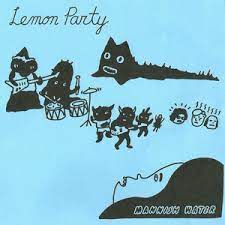Lemon Party When you hear about political parties, what do you usually picture? Probably formal debates, campaign promises, and serious discussions about policies. But imagine if a political party popped up just to inject some humor and silliness into politics. That’s where the Lemon Party of Canada comes in a satirical party that has made a distinct impression on the political scene in Canada.
What Was the Lemon Party of Canada?
Established on January 8, 1987, by Denis R. Patenaude, the Lemon Party of Canada, or Parti Citron in French, was not your typical political group. Combining absurd humor with sharp satire, the party aimed to poke fun at conventional political systems while entertaining and involving citizens in a lighthearted way.
The party functioned at both the federal and provincial levels in Quebec and stayed officially registered until November 14, 1998. It was deregistered because it didn’t meet the legal requirement of having at least ten candidates in elections.
A Party Like No Other
The Lemon Party wasn’t just about making jokes about politics; it built a bizarre, satirical world that was completely unique. Its so-called leader, “Pope Terence the First,” was a legendary character whose reality was always in question. Jean-Simon Poirier, a member of the party, humorously referred to him as a “mystical, mythical figure” who was supposedly traveling in places like “southwestern Siberia” or other imaginary destinations.
The party’s official representative, Mary-Gabrielle Blay II, made sure that their quirky campaigns kept an appearance of being properly organized.
The “Bitter Canada” Platform
The Lemon Party had a catchy slogan: “For a bitter Canada.” Instead of trying to actually win elections, their campaigns aimed to make people laugh and think. Throughout its time, the party came up with a bunch of funny promises that poked fun at the usual political agendas.
Here are a few of their most memorable proposals:
- Restructuring Canada’s Economy Around Lemon Production:
- A funny critique of economies that rely on just one industry.
- Supporting Global Warming:
- Lemon cultivation across Canada is the goal, obviously!
- Abolishing Toronto:
- This promise was designed to take advantage of stereotypes and local biases, making light of how urban areas are often blamed for political issues.
- Repealing the Law of Gravity:
- A creative way to stop lemons from getting bruised when they drop from trees.
- Merging the Great Lakes:
- One way to make additional “land” that could potentially be utilized for growing lemons.
The Lemon Party took their love for absurdity into their economic plans as well. They claimed that their financial strategies were inspired by Montreal economist Ianik Marcil, which gave a touch of seriousness to their silly behavior.
A Satirical Convention
In 2004, the Lemon Party organized a national convention where they claimed to have created specific policy platforms. Staying true to their satirical style, they revealed that these platforms were stored in “small green plastic boxes” and were sold to pig farms in Mexico.
The convention and the following press releases showed how the party could mix humor with clever critiques of political systems and economic policies.
Final Campaign and Legacy
Five days ahead of the 2006 Canadian elections, the Lemon Party released its last press statement. This announcement included humorous critiques of key political figures like Liberal leader Paul Martin and Conservative leader Stephen Harper, showcasing their cleverness right up to the finish.
Even though the party faded away after the late 1990s, its fun and sharp take on politics made a significant impact. By welcoming absurdity, the Lemon Party encouraged Canadians to see politics in a new way one that didn’t involve taking things too seriously.
Humour in Politics: The Bigger Picture
The Lemon Party was one of many satirical political movements in Canada. It was alongside other funny groups like the Rhinoceros Party, which also used humor to poke fun at the political system.
These events show how humor can help connect with people, challenge those in power, and remind us that politics doesn’t always have to be serious. By using jokes and laughter, they made politics easier to understand and less scary, especially for those who feel let down by the usual political parties.
Conclusion: Zestful Memories
The Lemon Party of Canada might not be around anymore, but its impact as a symbol of political humor still lives on. It showed us that adding a bit of fun can help lighten up even the most complicated political situations. visit x.com
In a time when politics can seem really divided and serious, the Lemon Party’s cheerful attitude and sense of humor might just be what we need. It shows us that sometimes the best way to get involved is to smile, ask questions, and who knows, maybe even defy the laws of gravity. vist for more xpro magz


